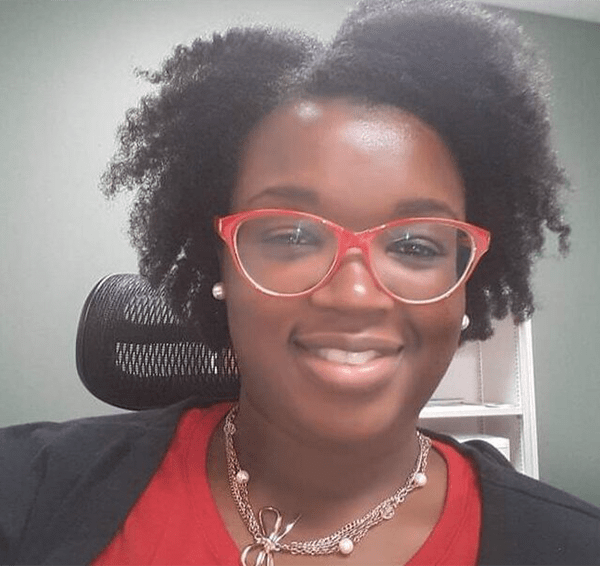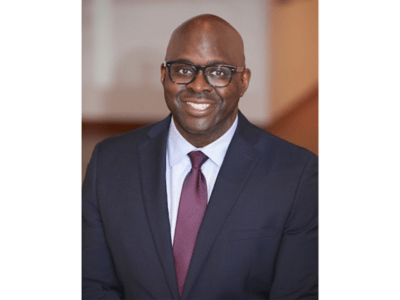We’re honored to have brilliant, dedicated Black leaders working to end homelessness in Built for Zero communities around the country. This month, we recognize some of the Black leaders in the movement to end homelessness.
Shamika Agbeviade has spent over 10 years providing direct services to individuals experiencing homelessness in a variety of roles, including conducting street outreach and working in an emergency shelter, transitional housing, and permanent supportive housing. She currently works as a Homeless Management Information System (HMIS) Administrator for Mecklenburg County Community Support Services in Charlotte, North Carolina and is the chair of its Equity and Inclusion Committee. Since 2019, this community of 1.11 million has reduced veteran homelessness by 20%.
What does an HMIS administrator do?
Shamika Agbeviade: My role is to train and provide technical assistance to HMIS end users. The community data captured in the HMIS database provides a clear picture of who is receiving housing instability and homelessness services in Charlotte/Mecklenburg, what resources are used to serve them, and allows us to make data-driven decisions about what community initiatives could be put in place to address ongoing housing instability and homelessness challenges.
What else are you working on?
I am a member of the Mecklenburg County Department Equity Action Team (DEAT), which champions building and sustaining a culture of equity and inclusion across the entire county.
I also served as the chair of the Continuum of Care (CoC) Equity and Inclusion Committee (EIC) from July 2020 to January 2022. The EIC is responsible for developing and implementing plans and processes to assess whether the CoC’s policies and resource allocation decisions are positively impacting inequities among homeless individuals and families in the community. Basically, the EIC is the equity lens of the CoC.
Over the past two years I have worked collaboratively with our Persons with Lived Experience Committee (PLE), Coordinated Entry Oversight Committee (CEOC) and the Equity and Inclusion Committee (EIC) to develop a Supplemental Tool to accompany the VI-SPDAT that addresses the equity issues present.
As a committee, we created a process map of leadership to see where there were Black and Indigenous persons of color and persons with lived experience in decision-making positions. As a result of this work, we revised our application to ensure we are intentionally recruiting for individuals that fill any gaps in representation. We have also worked on expanding the race options in HMIS and will advocate for the expanded options to be added systemwide.
We are working on our CoC’s Racial Equity Action Plan, which is a working document that is meant to guide the EIC, CoC leadership, and staff in developing actionable next steps that will advance equity principles and practices throughout the CoC.
“People should understand that racism is a major factor of homelessness in our country and that if inequity is not addressed and eradicated, we will continue to see people of color disproportionately impacted.”
Shamika Agbeviade
How is your community working to address unequal outcomes within their homeless system?
Charlotte-Mecklenburg CoC has worked with C4 Innovations to assess our community’s equity knowledge gaps and training needs and identify both strengths and challenges in our work to advance equity. As a result of this work, Charlotte-Mecklenburg CoC is working on finalizing the community’s action plan to focus on equity and ensuring we center equity in every aspect of our decision-making practices and policies.
As a CoC we have begun collecting data to conduct a system map that would identify the CoC’s system gaps and barriers across all programs to ensure we are meeting the needs of the community at large through an equitable lens.
What do people need to understand about racism and homelessness?
People should understand that racism is a major factor of homelessness in our country and that if racism is not addressed and eradicated, we will continue to see people of color disproportionately impacted. The color of your skin should not have any determinate on your economic, social, or health outcomes. We must all work to be anti-racist and teach the generations to come the same.
For more information on Charlotte/Mecklenburg County, North Carolina, efforts in solving homelessness, click here.
Learn more about Charlotte/Mecklenburg County’s work in making an equitable homeless response system.





